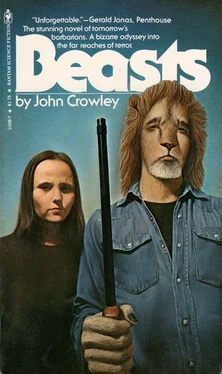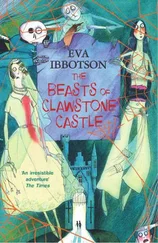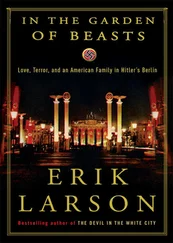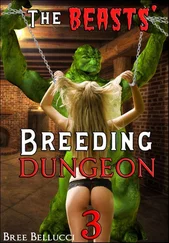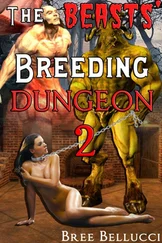There was a fascination in the year-old news magazines, so breathlessly reporting transience, giving warnings and prophecies, blithely assuming that the biases and fashions of the moment were the heralds of new ages, would last forever. He speculated, turning the damp pages, on what a man of, say, a century ago would make of these cryptic, allusive stories. They would be — style aside — much like the stories of his own time in their portentous short sight. But they reflected a world utterly changed.
USE calls for quarantine of free-living leos . No search of this paper would reveal that USE stood for the Union for Social Engineering. What would his reader make of that acronym?
And what on earth would he make of the leos?
“It was a known fact — about mice and men, for instance — but the real beginning was with tobacco,” the article began. Figure that out, Loren said to the reader he had invented. Opaque? Mysterious? In fact a cliché; every article about the leos told this tale. “They had long known, that is, that the protective walls of cells could be broken down, digested with enzymes, and that the genetic material contained in the cells could fuse to form hybrid cells, having the genetic characteristics of both — of mice and of men, say.
This they could do; but they could not make them grow.” Sloppy science, Loren thought, even for a popular magazine. He explained aloud about cell fusion and recombinant DNA to his nonplussed reader, then continued with the article:
“Then in 1972” — just about the time Loren imagined this being read — “two scientists fused the cells of two kinds of wild tobacco — a short, shaggy-leafed kind, and a tall, sparse kind — and made it grow : a medium-tall, medium-shaggy plant which, furthermore, would reproduce its own kind exactly, without further interference. A new science — diagenetics — was born.” Sciences are made, not born, Loren put in; and no science has ever been called diagenetics, except by the press. “In the century since, this science has had two important results. One is food: gigantic, high-protein wheat, tough as weeds.” And as tasteless, Loren added. “Plants that grow edible fruits above ground, edible tubers below. Walnuts the size of grapefruits, with soft shells.” And if anyone had listened to them, been capable, in those years, of Reason, had not preferred the pleasures of civil war, partition, and religious zeal, the lowlands that Loren’s tower commanded might now be covered with Walnato orchards, or fields of patent Whead.
“The other result was, of course, the leos,” the article went on placidly. And without further explanation, having performed its paper-ofrecord duties, it went on to explicate the intricacies of the USE proposals for a quarantine. It was left up to Loren, in the rest of that wet, confining day, to try to make sense out of the leos for the reader he had summoned up and could not now seem to dismiss.
There had been cell-fusion experiments with animals, with vertebrates, with mammals finally. The literature was full of their failures. No matter how sophisticated the engineering, the statistical possibility of failure in cell fusion, given all the possible genetic combinations, was virtually limitless; it wouldn’t have been surprising if only dead ends had resulted forever. But life is surprising; your era’s belief that one sort of life is basically hostile to another has long been disproven, is in fact if you think about it self-evidently false. We are, each of us living things, nothing but a consortium of other living things in a kind of continual parliamentary debate, dependent on each other, living on each other, no matter how ignorant we are of it; penetrating each others’ lives “like — like those hawks in the tower are dependent on me, and I am too on them, though we don’t need to know it to get on with it…”
So it happened that with skill and a growing body of theoretical knowledge, scientists (in a playful mood, Loren explained, having saved the world from hunger) created more grotesques than any old-time side-show had ever pretended to exhibit. Most of them died hours after leaving their artificial wombs, unable to function as the one or as the other; or they survived in a limited sense, but had to be helped through brief and sterile lives.
The cells of the lion and the man, though, joined like a handshake, grew, and flourished. And bore live young like themselves. There was no way of explaining why this union should be so successful; the odds against a lion and a butterfly combining successfully were almost as high.
It was the Sun, the leos have come to believe, the Sun their father that brought them forth strong, and said to them: increase and multiply.
Loren stopped pacing out his small house. He realized that for some time he had been lecturing aloud, waving his arms and tapping his right forefinger against his left palm to make points. Faintly embarrassed, he pulled on his tall Irish rubber boots and stomped out into the wet to clear his head. It was unlikely that in this weather any rabbits would have visited his amateur (and very illegal) wire snares, but he dutifully checked them all. By the time he returned, the evening sky, as though with a sigh of relief, had begun to unburden itself of cloud.
Much later, moving with difficulty in the confines of his bag, he watched the horned moon climb up the sky amid fleeing cloudlets. He hadn’t slept, still strung up from a day indoors. He had been explaining about the Union for Social Engineering to a certain John Doe dressed in a brown twentieth-century suit, with eyeglasses on, He understood that this person, invented by him only that day, had now moved in permanently to join his solitude.
“Welcome to the club,” he said aloud.
It was raining softly again when Loren, at the end of the month, biked from the tower to the nearest town. He needed some supplies, and there might be mail for him at the post-office-store. The journey was also in the nature of a celebration: tomorrow, if it was fair, and it promised to be, he would open the nesting box for good. His falcons would fly: or at least be free to do so when the physical imperatives so precisely clocked up within them had come to term. From now on he would be chiefly observer, sometimes servant, physician possibly. They would be free. For a time they would return to the tower where they had been fed. But, unless they appeared to be ill or hurt, he wouldn’t feed them. His job as parent was over. He would starve them till they hunted. That would be hard, but had to be; hunger would be the whip of freedom. And in two or three years, when they had reached sexual maturity, if they hadn’t been shot, or strangled in electric wires, or poisoned, or suffered any of a thousand fates common to wild raptors, two of them might return to the tower, to their surrogate cliff, and raise a brood of quilly young. Loren hoped to be there to see.
His bike’s tiny engine, which he shut off when the way was level and he could pedal, coughed as the tires cast up gauzy wings from the puddly road; Loren’s poncho now and then ballooned and fluttered around him in the rainy breeze, as though he were rousing plumage preparatory to flight. He sang: his tuneless voice pleased no one but himself, but there was no one else to hear it. He stopped, as though hushed, when the raincut dirt road debouched onto the glistening blacktop that led to town.
He had a festive breakfast — his first fresh eggs in a month — and sipped noisily at the thick white mug of real coffee. The newspaper he had bought reported local doings, mostly, and what appeared to be propaganda generated by the Fed. This southernmost finger of the Northern Autonomy lay close to the coastal cities that, like the ancient Vatican States, huddled around the capital and enjoyed the Fed’s protection. And the Fed’s voice was louder than its legal reach. President calls for return to sanity. He laughed, and belched happily; he went out smoking a cheap cigar that burned his mouth pleasantly with a taste of town and humanity.
Читать дальше
